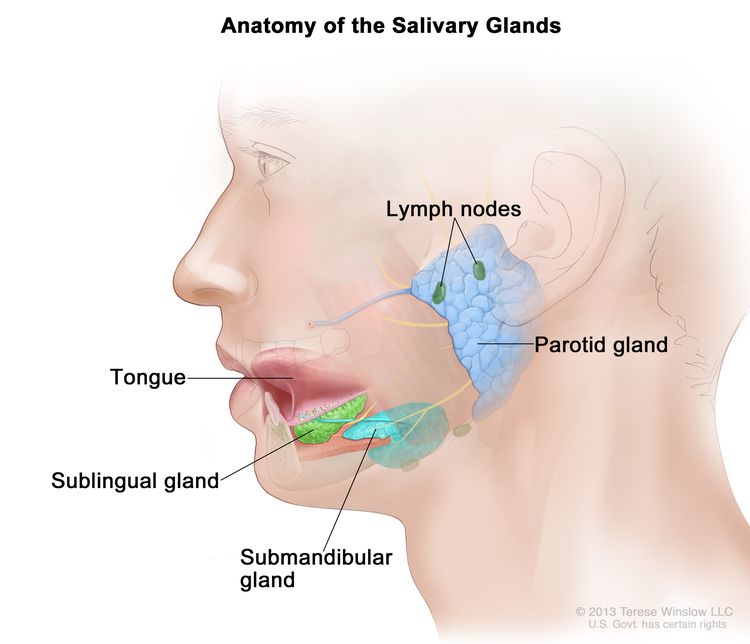What Is Salivary Gland Cancer?
Salivary gland cancer is a rare malignancy that originates in the glands responsible for producing saliva — the parotid, submandibular, sublingual, or minor salivary glands found throughout the mouth and throat. Although it accounts for less than 5% of head and neck cancers, its diversity and complexity pose diagnostic and therapeutic challenges.

⚠️ Symptoms to Watch For
- A painless lump or swelling near the ear, jaw, or inside the mouth
- Facial numbness or paralysis
- Persistent pain in the mouth or neck
- Difficulty swallowing or opening the mouth
Early detection significantly improves outcomes.
How Is It Diagnosed?
Diagnosis typically involves:
- Medical imaging (MRI, CT, or PET-CT scans)
- Fine needle aspiration (FNA) biopsy
- Histopathological examination of tumor tissue
- In some cases, molecular or genetic testing to guide treatment decisions
The Role of Netupitant and Vibegron in Cancer Supportive Care
✅ Netupitant: Preventing Nausea from Chemotherapy
Netupitant is an NK1 receptor antagonist often used with palonosetron. It’s effective in preventing:
- Chemotherapy-induced nausea and vomiting (CINV)
- The disabling side effects that can hinder treatment adherence
➡️ Netupitant significantly improves patient comfort and treatment tolerability.
✅ Vibegron: Managing Urinary Symptoms During Treatment
Vibegron is a β3-adrenergic receptor agonist used to treat:
- Overactive bladder (OAB)
- Urinary urgency, frequency, and incontinence
In cancer patients, these symptoms may arise due to radiation, certain medications, or hospitalization.
➡️ Vibegron improves quality of life by relieving urinary discomfort that may not be directly related to the tumor.
The Importance of Supportive Oncology Care
Modern cancer treatment goes beyond targeting the tumor — it focuses on the whole patient. Supportive care includes:
- Managing side effects with drugs like netupitant and vibegron
- Preserving quality of life
- Ensuring patients complete their treatment with fewer complications
This is especially important in head and neck cancers, where speech, taste, swallowing, and psychological well-being can be deeply affected.
Conclusion
Salivary gland cancer may be rare, but it requires specialized, holistic care. With advances in surgery and radiation therapy, combined with supportive medications like netupitant and vibegron, patients can experience better outcomes — not just in survival, but in day-to-day comfort and dignity.